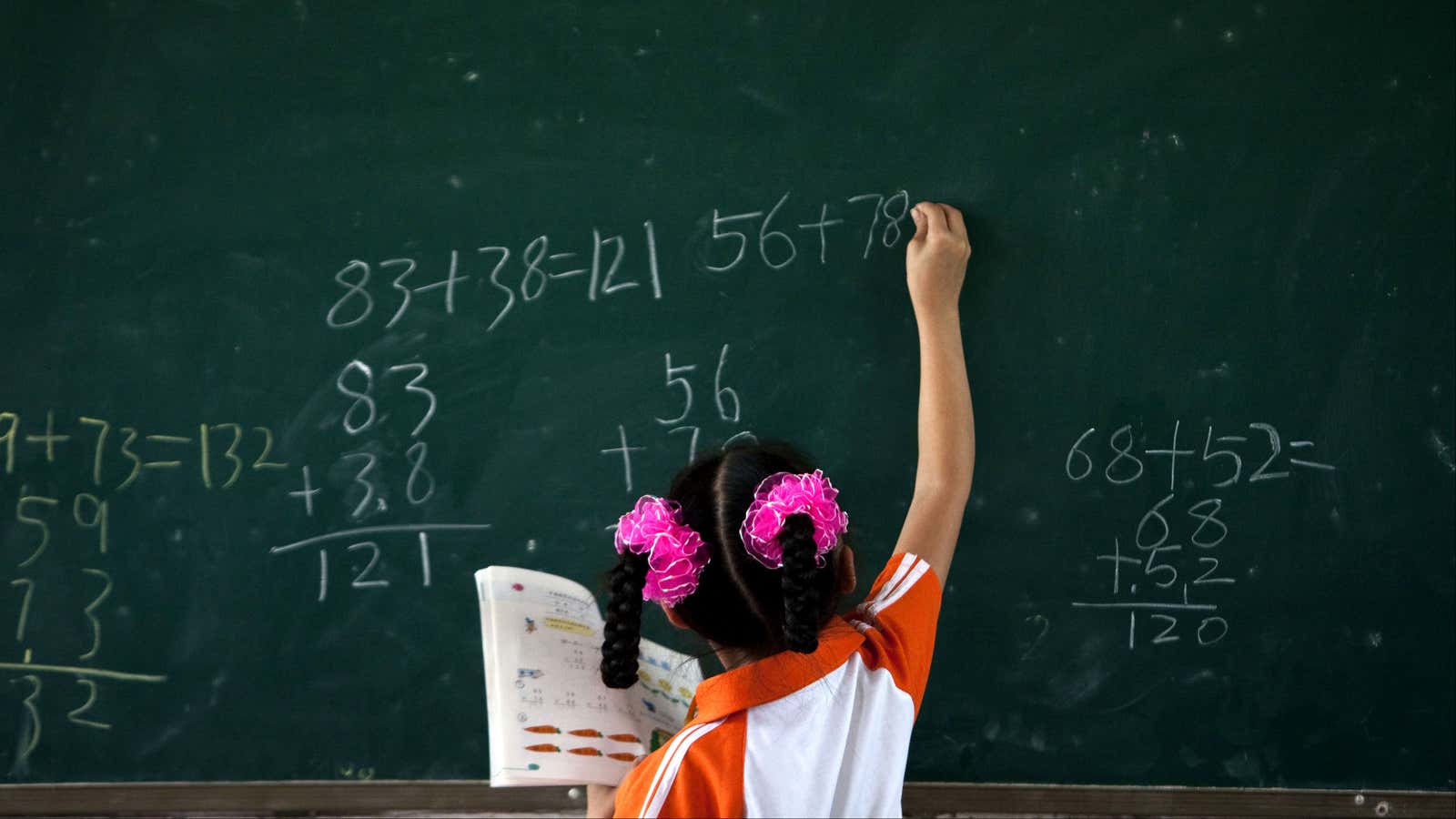This item has been corrected.
The Chinese government is finally taking steps to dismantle the household residential system, one of its most oppressive laws and a major source of China’s growing income inequality. That’s the good news. The less sunny news is that the first stab at reform is a timid one.
The measure, announced on Dec. 30, involves allowing the children of migrant workers to sit for the college entrance exams or gaokao in the city they live in, instead of having to go back to their parents’ home town. That should in theory help level the playing field for some 20 million migrant children, because colleges in big cities accept lower test scores for local residents.
It marks the first actionable loosening of the household registry system, known more commonly as the hukou (loosely translated as “registered permanent resident”) system, which limits the access of China’s 200-300 million migrant workers to things like education, health care, social services, and pensions.
However, Reuters reports some serious foot-dragging among the cities with big migrant populations: namely, Guangzhou, Beijing and Shanghai. Of these, only Guangzhou, which has the most migrant workers, is planning to count migrant student applications as local. A slew of smaller provinces, however, have already rolled out plans (Chinese), most of which count migrant students as local applicants.
This is not, in short, a bold first move in hukou reform. True, little that we have seen so far from China’s new administration, unveiled at the 18th Communist Party congress in November, would qualify as bold. However, incoming premier Li Keqiang has aggressively championed the rights of migrant workers, making it something of a mystery as to why the new administration allowed the less-than-impressive policy changes to be publicized.
Of course, the sheer scale of hukou reform makes caution prudent. Official estimates put the cost at $786 billion over ten years. But reform of gaokao is almost certainly the lowest-hanging fruit. That it should have been an easy political win for the new leadership makes the disappointing debut all the more baffling.
One possible explanation is political expedience. The new policy was announced after a daughter of migrant workers became a media sensation by micro-blogging her struggle against the Shanghai education commission, setting off protests in Beijing and Shanghai. The government’s response may be a sign of its increasing sensitivity to popular outrage about China’s worsening wealth gap. However, by revealing two of the three biggest cities’ resistance to reform, it risks whipping up still more popular backlash.
Perhaps a more likely reason for the weak gaokao reform is the new administration’s flimsy control over strong municipal governments. Mega-cities like Beijing and Shanghai worry, and with reason, that loosened hukou policies will attract a flood of migrants. Then there’s the price tag on reform. To cash-conscious local leaders, expanding the availability of services like public education and medical care to millions of migrants sounds like an expensive proposition, as a recent survey of mayors in eight provinces showed.
Still, smaller provinces fell in line with issuing gaokao reform—why couldn’t the big cities, as well? That the central government didn’t force their hand on something so low-risk does not bode well for its ability to do so when it pushes for the much broader-based reform that China’s migrants—and its economy—so desperately need.
Correction: An earlier version of this story said that the Communist Party congress was in October; this was changed to November.
